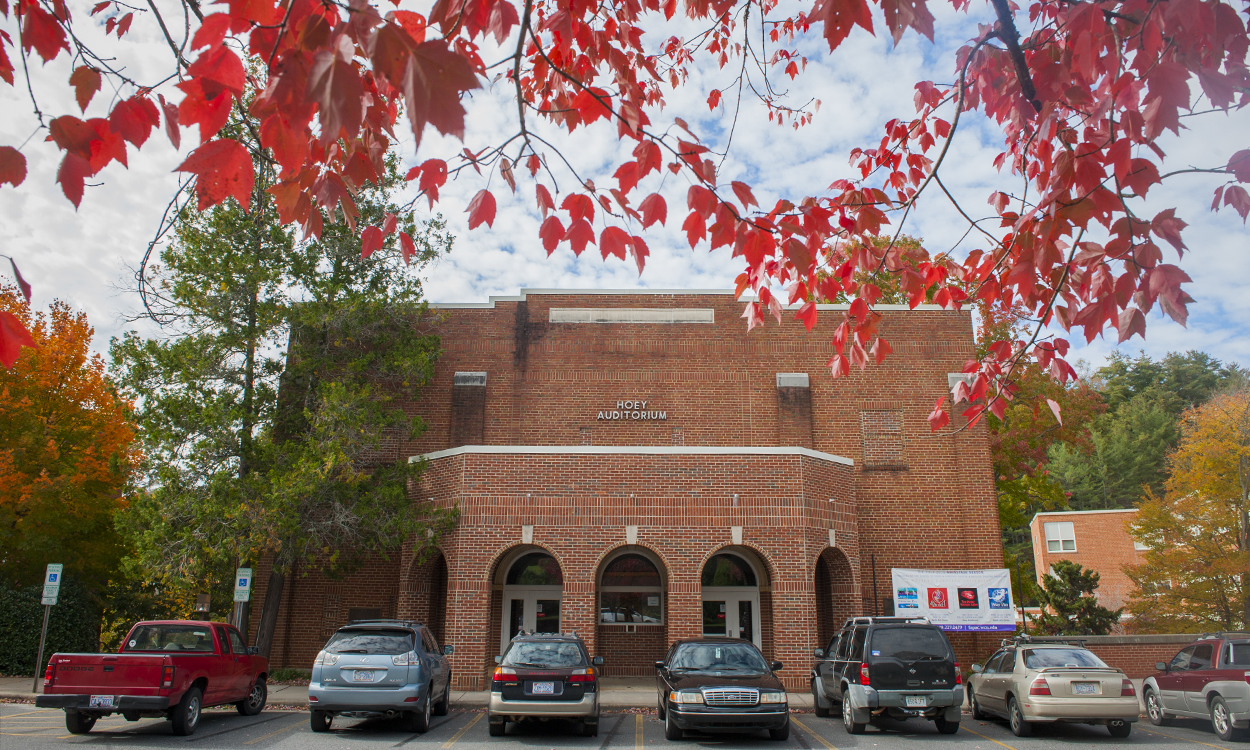WCU board removes name 'Hoey' from campus auditorium

Hoey Auditorium
The Western Carolina University Board of Trustees unanimously approved a resolution removing the name “Hoey” from a campus performance facility.
The action to rename the facility University Auditorium came Monday, June 29, during a special called meeting of the board, which was held by teleconference because of protocols related to COVID-19.
Clyde R. Hoey, the facility’s namesake, is a former governor of North Carolina and state and federal legislator who actively opposed civil rights legislation and favored racial segregation. He also opposed statehood for Hawaii because the territory contained “only a small percentage of white people.”
“It is the policy of the university to honor the core values of diversity, equality and social justice, and the university is devoted to the development of a culture of inclusivity,” the board’s resolution states. “The university reserves the right to terminate a facility naming when the facility naming is contrary to the best interests of the university.”
Bryant Kinney, chair of the board, said that he and his fellow trustees thought it was important for the university to take this action.
“The board feels strongly that we needed to take this step to reflect the values of today’s Western Carolina University campus,” Kinney said. “We are not an institution that honors a past that supported inequality. We are an institution that honors diversity, equality and social justice.”
The action to change the auditorium’s name is “long overdue,” WCU Chancellor Kelli R. Brown said. “I am proud that WCU is taking this proactive step today as we model our core values of diversity and inclusion,” Brown said. “The values and views of the auditorium’s now former namesake do not correspond with the values and views of Western Carolina University.”
Ricardo Nazario-Colón, WCU’s chief diversity officer, commended the board for changing the facility’s name.
“Today’s action is more than symbolic,” Nazario-Colón said. “It demonstrates that we as an organization have the capacity to listen, evolve and possess the fortitude to stand on the side of goodness. Thank you for leading the way and thank you to each board member.”
Completed in 1939, the historic 450-seat auditorium was the university’s first dedicated performance space and helped WCU expand its music and arts offerings. The facility was renovated in the late 1980s.
The auditorium – which is still used for some performances, as well as for rehearsals, set design and storage – is slated for eventual demolition as part of the university’s long-range master plan, said Interim Provost Richard Starnes.
The 1,000-seat Performance Hall in the John W. Bardo Fine and Performing Arts Center has become WCU’s primary space for theatrical performances since its completion in 2005. The university’s long-range master plan calls for additional performance space to be built adjacent to Bardo before to the smaller auditorium is taken down.

